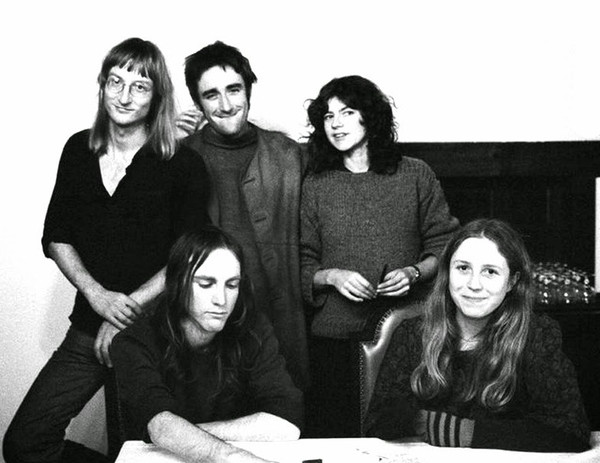New Upcoming Henry Cow Book
Printed From: Progarchives.com
Category: Progressive Music Lounges
Forum Name: Prog News, Press Releases
Forum Description: Submit press releases, news , new releases, prog music news and other interesting things happening in the world of progressive music (featured in home and artist page)
URL: http://www.progarchives.com/forum/forum_posts.asp?TID=119597
Printed Date: December 26 2024 at 00:00
Software Version: Web Wiz Forums 11.01 - http://www.webwizforums.com
Topic: New Upcoming Henry Cow Book
Posted By: Guests
Subject: New Upcoming Henry Cow Book
Date Posted: March 05 2019 at 11:09
 In September 2019, Duke University Press will be publishing a new book on
the experimental band Henry Cow, Henry Cow: The World is a Problem. The avant-rock/jazz band featured a rotating cast of members and continuously challenged genre and other conventions. Active in the UK and Europe, but never quite popular due to their uncomprising committment to experimentation and their radical politics, Henry Cow performed and recorded from 1968 until 1978. Drawing on ninety interviews with Henry Cow musicians and crew, letters, notebooks, scores, journals, and meeting notes, music scholar Benjamin Piekut offers the definitive history of the band. He traces the group?s pursuit of a political and musical collectivism, offering up their history as but one example of the vernacular avant-garde that emerged in the decades after World War II. PA artist page: http://www.progarchives.com/artist.asp?id=608" rel="nofollow - http://www.progarchives.com/artist.asp?id=608 Release Date: September 2019 Link: http://www.dukeupress.edu/henry-cow" rel="nofollow - http://www.dukeupress.edu/henry-cow
|
Replies:
Posted By: Man With Hat
Date Posted: March 05 2019 at 13:20
|
Very interested in this. Surprising this will become a thing. ------------- Dig me...But don't...Bury me I'm running still, I shall until, one day, I hope that I'll arrive Warning: Listening to jazz excessively can cause a laxative effect. |
Posted By: Mascodagama
Date Posted: March 05 2019 at 14:25
|
Yeah, I have to get this. I see it's already available as a pre-order on Amazon despite not being out for six months! ------------- Soldato of the Pan Head Mafia. We'll make you an offer you can't listen to. http://bandcamp.com/jpillbox" rel="nofollow - Bandcamp Profile |
